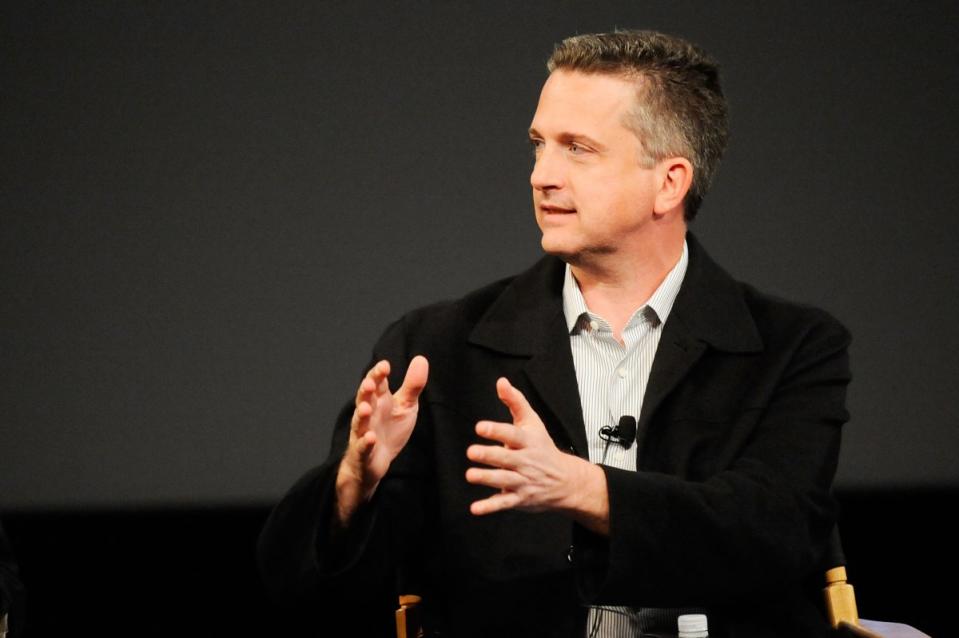Bill Simmons’s Websites Are Surprisingly Tiny, And One Potential Bidder Says He’s Not Worth $3 Million Per Year

Rob Loud/Getty Images
Late last week, we passed on scuttlebutt that ESPN columnist/podcast/sports guy/talking head/producer Bill Simmons will be a free agent in a year.
People in the tech and media industries believe Simmons wants to leave ESPN, where he reportedly makes more than $3 million per year.
It’s said that Simmons wants to start his own company, with investment from a platform that will help him with sales, tech, and publicity.
If so, that platform will presumably need to write Simmons quite a large check to get going.
For comparison’s sake, the news-for-millennials startup Mic raised $10 million for its second big round of financing last spring. Previously it raised $5 million. Bleacher Report cofounder Bryan Goldberg raised $6.5 million to launch Bustle, a news site for women.
Simmons will probably need to raise a similar amount to staff a newsroom of 20 or so. He will definitely need to raise more if wants to keep pulling a $3 million salary.
Is Simmons worth that kind of money?
Not according to one digital media CEO we spoke to.
This person pointed to the performance of the two big sites Simmons has launched for ESPN so far.
The first is Grantland, the middle- to high-brow sports site Simmons launched three years ago.
According to ComScore, Grantland reached 4.8 million people in August 2014. That’s pretty small compared to the 25 million Gawker Media sports site Deadspin reached in the same month. Grantland grew 19% year-over-year. Deadspin grew 303%. The audience of another competitor, Vox Media’s SB Nation, was 13 million.
The comparison is especially ugly for Grantland when you consider that it gets a lot of traffic from ESPN.com, a Web giant with roughly 200 million monthly unique visitors.
Here’s a graph comparing Grantland.com to Deadspin using data from metrics firm SimilarWeb:
The second big Web brand Simmons helped launch for ESPN is a site called FiveThirtyEight/LINK. As Grantland is built around Simmons, FiveThirtyEight is built around Nate Silver — the reporter who became famous for using polling data to accurately predict the results of the 2008 and 2012 presidential elections.
FiveThirtyEight is supposed to be a “smart” site that tells stories based on numbers.
Supposedly, Simmons fought hard for ESPN to hire Silver, and some ESPN executives hold Simmons accountable for FiveThirtyEight’s performance.
So how is it doing?
ComScore says FiveThirtyEight has just under 2 million visitors. That’s small, but FiveThirtyEight is relatively new.
Fortunately, there’s a good site to compare FiveThirtyEight to: Vox, the politics-and-more news analysis site from Vox Media that launched around the same time and has its own star editor, former Washington Post political blogger Ezra Klein.
ComScore says Vox has 10.7 million unique visitors.
Here’s a graph using data from SimilarWeb:
Why are FiveThirtyEight and Grantland so small?
The digital media CEO we spoke to said he’s heard Grantland writers are completely shielded from traffic data and that there is little pressure on them to attract new readers.
That’s different than how things run at successful standalone digital properties, including Gawker Media, Huffington Post, Buzzfeed, and some of the Vox Media sites,where (with some exceptions) writers are usually aware of their traffic and sometimes see their compensation rise or fall because of it.
Because of that difference, the CEO we spoke to said he will probably stay out of any bidding war for Simmons when his contract is up next year.
Nonetheless, Simmons may well be worth what ESPN pays him.
After all, ESPN is a Web giant already, so squeezing a few million extra uniques out of Simmons may not really be a priority.
ESPN may well be perfectly happy simply to have him on TV talking about basketball, coming up with ideas like the 30 for 30 documentary series, and generally infusing the ESPN brand with the Simmons mystique — making the whole place more attractive to advertisers.
There is real value in all of that.
It’s just unlikely a digital-only, venture capital-funded company would be able to capture the same value.
If Simmons wants to start or partner with a company like that, his new site is going to have work differently than Grantland.
If he doesn’t want to do that, he has two options: stay in the world of TV-based media — perhaps joining FOX Sports or NBSCN — or go to a new media company such as Yahoo or AOL, willing to pay him because his brand’s halo effect.
Read more stories on Business Insider, Malaysian edition of the world’s fastest-growing business and technology news website.


